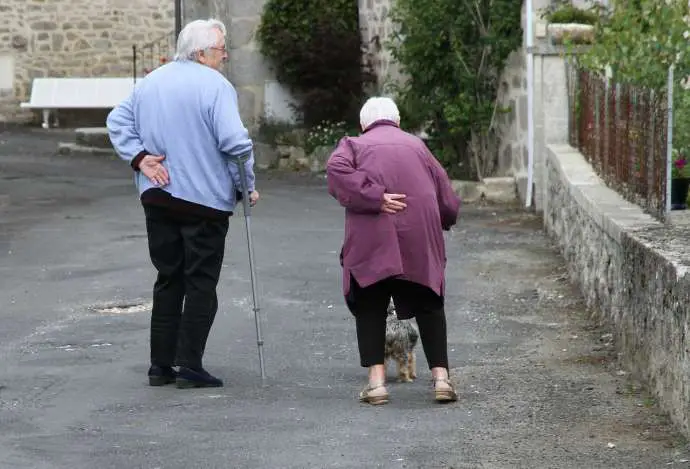STA, 3 August 2020 - The Association of Social Institutions has left the government task force for Covid-19 after their demands regarding the treatment of infected residents of care homes off-site have not been met. The Labour Ministry said it regretted the association's decision, while the Health Ministry said the association shared part of the blame for the issues.
The association initially intended to pull out of the task force which is setting the protocols for preventing the spreading of coronavirus in social security institutions on Saturday but received a new proposal regarding the treatment of infected care homes residents at the end of last week.
The solution included the possibility of transferring the infected residents to mobile units since the association has been pushing for the infected residents to be isolated outside care homes immediately so as to prevent the spreading of infections.
The association's task force looked into the proposal during the weekend but was obviously not persuaded by the solutions offered.
The demand for implementing the law and isolating the infected residents of health or other institutions whose architectural design meets the standards for such institutions has not been met, the association told the STA on Monday.
It has also been warning that most care homes do not have the capacity to set up three separate zones - a red zone for infected residents, a grey zone for potential infections and a white zone for healthy residents - in case of confirmed Covid-19 as envisaged by the current protocols.
A survey conducted by the association and NGO Amnesty International Slovenije between 30 July and 3 August among 83 social security institutions has shown that more than 86% of the institutions are physically unable to set up grey and red zones, while 93% of them lack technical capacities. Almost all institutions, 98%, lack the required staff.
Labour Ministry State Secretary Cveto Uršič said he regretted the decision of the association, noting that they had been cooperating well so far. He said representatives of the association would continue to be invited to the meetings of the task force.
"(Care) homes have been dealing with the epidemic properly, which is being confirmed by the fact that more than nine out of ten homes have successfully avoided infections. We are witnessing new infections at homes in recent weeks, but they have been responding well, including in Hrastnik, where the number of infected has been dropping," Uršič told the press.
He said hospitals had recently set up four special Covid-19 units where care home residents who would otherwise not need hospital treatment could be temporarily placed to give care homes time to set up isolation zones.
He also noted that funds for additional staff had been secured and that the Health Ministry was offering training to care home staff on ways to avoid infection.
Efforts are under way to secure enough equipment to last care homes for 30 days, he added.
"To sum up, it is a real pity for the representatives of the association to step down. A lot of effort has been invested on their part and on the part of homes and both ministries," he said.
Meanwhile, a somewhat differently toned reaction came from the Health Ministry, which wrote it was not surprised by the association's decision, "in particular because it shares responsibility for the situation, having co-shaped through the years the manner in which work is organised and staffing standards are set".
"This is an attempt to discredit the search for joint solutions," the ministry added, saying negotiation were not possible when planning for elderly care, as all decisions needed to have professional reasons as opposed to reasons based on interests or politics.
"Everybody who needs hospital care gets it ... We all operate in the interest of the residents. To expect that a resident will be moved out of the care home merely over the suspicion of infection is unethical, unprofessional and inhumane," the Health Ministry said in a written response for the STA.
The ministry added it was aware of staffing and logistic issues at some homes, but argued that those who had approached the situation in a constructive manner were coping successfully.
Suggesting that the novel coronavirus could be present in Slovenia for several years to come, the ministry said it had quizzed care homes about their interest in obtaining container accommodation units that would help address the lack of room for manoeuvring.
The association said earlier today it was hoping that their pulling out of the government task force is only temporary and that it was prepared to take part in informal meetings.
"We're still open for communication with the state, with decision-makers who will listen to our views, opinions and concrete experience ... who will give us the chance to participate, not just be present."
The government Covid-19 task force is to hold its next meeting on Thursday and Uršič said he hoped to see representatives of the association there.
The issue of handling coronavirus infections at care homes rose to prominence once again after Slovenia's curve started to rise in the last few weeks and the care home in Hrastnik became the site of a major outbreak.







